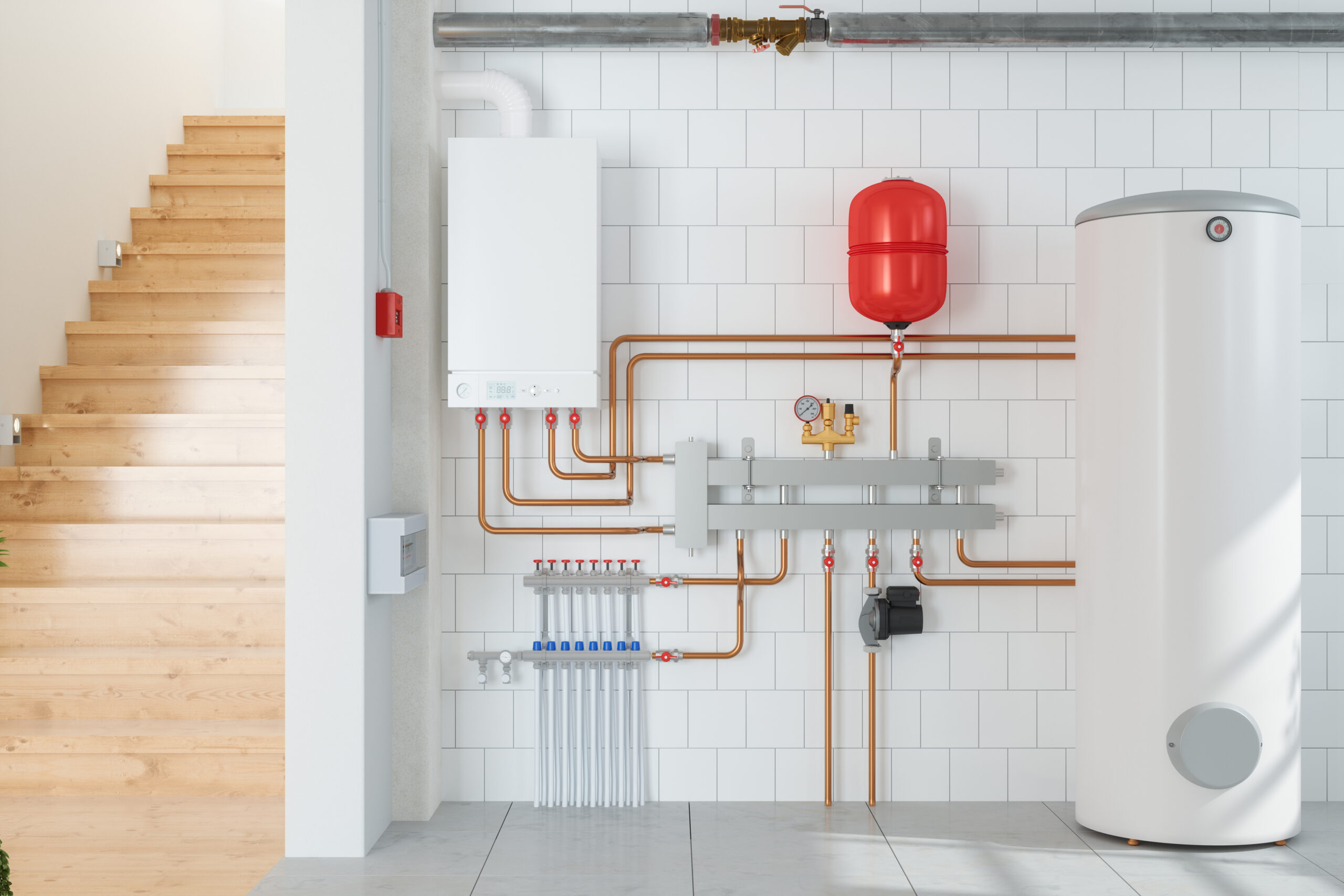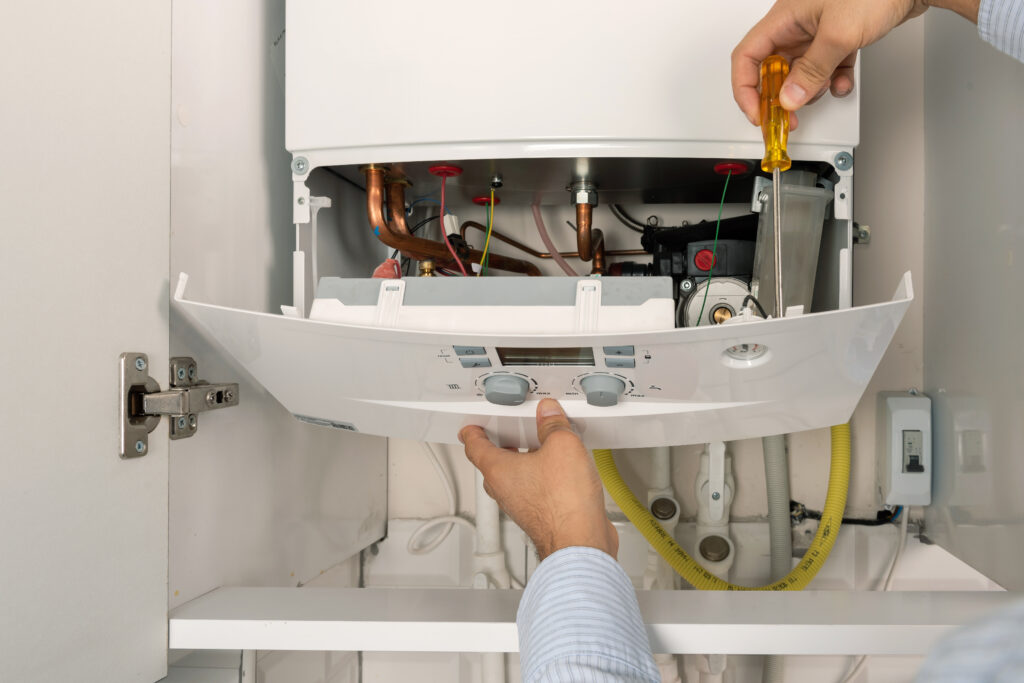
A boiler is one of those household appliances that – unlike ovens, fridges, and washing machines – while frequently in use, is barely given a second thought.
But while it’s thanklessly ticking along in the airing cupboard or utility room, it might be accumulating faults that, if not treated, could become critical and, ultimately, require a costly repair job.
Fortunately, a timely boiler service can nip any issues in the bud before they result in a breakdown. But how much does a boiler service cost? Should you take out boiler cover? And is it worth it, or should you just pray that you never experience a problem and save the money?
In this article, we’ll answer those questions and more, including:
- Why do I need to have my boiler serviced?
- How often do I need to service my boiler?
- What does a boiler service involve?
- How much does a boiler service cost?
- What about boiler cover?
- How can I get cheaper boiler cover?
Why do I need to have my boiler serviced?
Unless you’re a landlord, there’s no legal obligation to have your boiler serviced. However, there are still many good reasons to do so.
An annual boiler service can help you to save money in a number of ways. Firstly, it can spare you from even more costly repairs by reducing the chance that your boiler will break down at a later date.
Secondly, if your boiler is still under warranty, you’re required to get an annual service to retain the warranty. If you don’t, and there’s an issue, it won’t be covered, and you’ll have to fork out for the full cost of the repair.
And thirdly, a regularly serviced boiler is also more efficient and effective, and a more efficient boiler costs less to run and has a much longer lifespan.
Finally, servicing makes your boiler safer. If you have a gas boiler, and it leaks, there’s a very real risk of carbon monoxide poisoning, which can make you seriously ill and, if allowed to continue, even prove fatal.
See also: What is home emergency cover?
How often do I need to service my boiler?
We would recommend servicing your boiler every year, ideally during the summer months. This ensures that it’s in full working order ahead of winter, and, as it’s usually a less busy period for boiler engineers, you should be able to get a quicker, cheaper call out.
What does a boiler service involve?
A boiler service involves several key steps:
- Visual inspection – the first stage is a superficial examination of the boiler, how it has been installed, and whether there are any signs of damage, corrosion, or water leakage. The engineer will also check that the controls are working correctly
- Inspection of internal components – the engineer will then remove the external casing to check the inside of your boiler and its components, including the connections on the heat exchanger, the combustion seals, the pilot light colour (if it’s either yellow, orange, red, purple or green then you have an issue), and the flue and pipework (which carries exhaust gases outside your home and safely release them into the atmosphere)
- A safety check – the engineer will check that every appliance that relies on gas in your home is operating safely, and should also take carbon monoxide and carbon dioxide readings
- A clean up – during the inspection, your engineer should perform a general clean of the components, such as removing any build of gunk around the fan
- A pressure test – a measurement of boiler pressure tells you the pressure of the water travelling round your central heating system. If it’s too high, you run the risk of leaks. If it’s too low, your boiler won’t be performing efficiently
As you can see, a boiler service isn’t just a perfunctory check-up, it’s an in-depth assessment of the boiler’s performance, safety, and functionality, which is well worth the money considering how much it could save you in the long run.
Speaking of money, how much exactly will it cost to have your boiler serviced?

How much does a boiler service cost?
The average cost of a boiler service in 2023 is around £100 (Checkatrade, 2023), though this cost will vary significantly depending upon a number of factors, including:
- Your location – London prices are more expensive than the rest of the country
- Whether you pay for an annual one-off service or for boiler cover – you’ll pay a single charge for one-off service and a monthly fee for cover
- The type of boiler you have – gas, oil or combi
| Type of boiler | Low-range cost | High-range cost |
| Gas | £80 | £120 |
| Oil | £75 | £110 |
| Combi | £62 | £98 |
See also: What are the benefits of home emergency cover?
What about boiler cover?
Boiler cover is a type of insurance that includes the cost of an annual service as well as the cost of any required repairs and replacements. Cover typically costs anything from £8 to £20 a month depending on the provider and the level of cover.
That means you’re looking at paying between £96 and £240 for your annual cover, roughly comparable, at the lower end, to a one-off service.
Alternatively, you could consider a home emergency insurance policy. A home emergency policy covers you for unexpected home disasters that could otherwise leave you in a tight financial situation.
For example, if you have an issue with your electrics, plumbing, drains and pipes, boiler, heating system or roof, home emergency insurance will provide an engineer to carry out repairs.
And, with some prices starting at around £30 per year (Save More Money, 2023), the cost of this type of cover could save you a lot of money should you need to make a claim.

How can I get cheaper boiler cover?
So, boiler cover can work out cheaper than paying for a one-off service in many cases, but are there any steps you can take to get an even better deal on your boiler cover?
Try the following strategies:
- Don’t take out more cover than you need – assess the extent of coverage you actually require and don’t pay for more than is necessary. For example, some elements of your heating system may already be included in your home insurance policy, so avoid doubling up
- Opt for home emergency cover – the cost of some home emergency cover policies starts at as little as £32.58 per year (Save More Money, 2023) and will cover not only sudden and unexpected boiler breakdowns but also other significant issues that can arise in the home
- Choose annual payments – while it can seem like a lot to pay for the full year up front, savvy consumers know that they’re saving a significant amount by doing so
- Keep up with your regular service – you can avoid having to pay the excess or for repairs entirely if you keep to a strict annual service schedule, which will enhance your boiler’s lifespan
- Maintain the correct pressure – an efficient boiler typically runs at a recommended pressure of between 1 and 1.5. Keep an eye on the pressure gauge on the front of your boiler and make any necessary adjustments if the pressure starts to stray outside of those parameters. Efficient boilers are cheaper to run and will last longer
- Insulate – insulating your pipes is a proactive measure you can take to improve the efficiency of your boiler and can even prevent it from breaking down in bad weather. Best of all, it’s fairly cheap to do
The bottom line
No one can tell you whether boiler insurance or home emergency cover is right for you, only you know what your household needs.
However, if you don’t want to be caught with no cover out during a home emergency, insuring your boiler is something to consider. Not only could it save you time and money when it comes to arranging a repair, but you’ll also get peace of mind knowing you have somewhere to turn for help.
